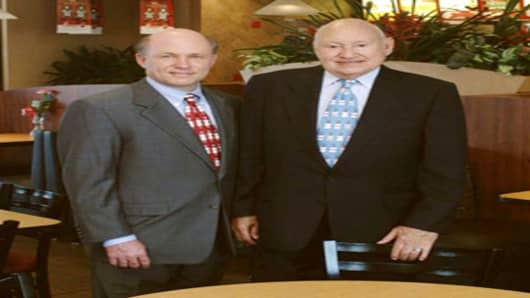Every day of the week, the Chick-Fil-A restaurant chain rakes in more than $6 million dollars — every day, that is, except Sunday when all of the chain's 1,340 stores are closed. It's not because of any state or federal law — this company answers to a higher authority.
Honoring Sunday as a day of rest is just one of the ways Chick-Fil-A combines two things that don't often go together — business and religion.
With every customer it serves, Chick-Fil-A also strives to serve God. It is a company grounded in Christian beliefs that drive everything it does, including closing on one of fast foods’ most profitable days of the week.
"Business people are always quoting, you know, great thinkers in business," President and Chief Operating Officer Dan Cathy said. "You know, whether it be the Jack Welchs or the Peter Druckers, we simply choose to go a little further back in history and say, 'Hey, you know now, the 10 Commandments that Moses scribed, you know, from the heart of God, you know, many, many years ago, are very applicable today."
While some may find Cathy's talk of God and business uncomfortable, or even offensive, you wouldn't know it from the appetite customers have for Chick-Fil-A.
At grand openings across the country, parking lots have been filled with scores of people who have spent the night, sleeping in cars and tents, awaiting the unlocking of the doors. Dan Cathy has been known to camp out with the customers instead of staying in a hotel. And at every opening, he rewards the devoted, giving vouchers to the first 100 customers in line for free Chick-Fil-A meals for every week of the year.
While the crowds may come for Chick-Fil-A's signature sandwiches, or because of the quirky cows that beg people to "eat mor chikin," they get more than the usual fast food fare.
Seventy-three new restaurants opened in the just the past year, and sales are up 15 percent to $2.3 billion. And it may be because of the religion factor, and not in spite of it, that this privately held, family-run business has thrived.
But Cathy wouldn't refer to Chic-Fil-A as a "Christian business."



